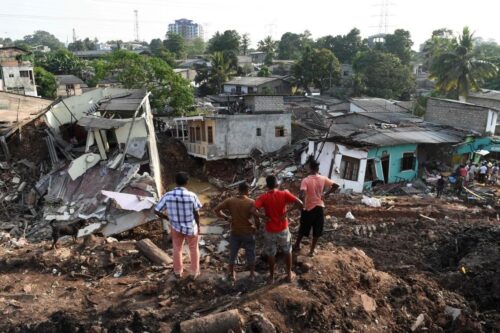Visiting Sri Lanka and Vietnam with USAID’s Municipal Waste Recycling Program

By Darren Manning, Urban Development Officer, USAID
From May 20 to June 2, I visited Sri Lanka and Vietnam with implementing partner Development Innovations Group (DIG) to support the preparations for the first round of grants under USAID’s Municipal Waste Recycling Program (MWRP). This is a new program that focuses on identifying and scaling innovations through targeted grants to improve municipal waste recycling in three Asian countries — Sri Lanka, Vietnam, and the Philippines — which are among the world’s top five producers of plastics waste. Improper disposal of municipal solid waste is a major environmental and economic development issue around the world. Failure to manage waste properly has significant negative impacts on both public health and the environment. These fundamental problems also pose serious challenges to economic growth due to lost worker time and stunting of commerce and tourism. Several promising grant proposals were received from local organizations in these countries and my trip focused on vetting the management capacity of potential grantees, briefing USAID missions on program goals, and meeting with local NGOs and government entities involved in waste management and recycling.
In Sri Lanka, we saw first-hand the terrible impact of poor waste management when we visited a landfill where a 300-foot mound of garbage collapsed on the outskirts of the capital, Colombo, in April 2017. Though the MWRP is not currently addressing this accident, the incident has claimed 32 lives and forced hundreds of residents to evacuate. Since then, the dump has shut down and the waste management situation in Colombo has worsened with garbage piling up in the streets.
The Public Works division of the Colombo Municipal Government and Sri Lanka’s Central Environmental Authority are launching new initiatives to address the county’s waste management problems, but challenges remain. Organizations like local NGO Sevanatha, a new grantee under USAID’s Municipal Waste Recycling Program, are trying to help the situation by revitalizing and enhancing the capacities of urban and rural poor in Sri Lanka. We spent two days accompanying them to a municipal landfill where they created a program to train municipal employees on the separation of organic waste to produce compost, and later to a project that captures trash in rivers for proper separation and disposal. Through the support of the MWRP, Sevanatha will be able to strengthen the partnerships between civil society, private sector, and local governance to raise public awareness on proper waste management and separation practices. We also worked with them to review their grant proposal under MWPR and assess their financial and management capacity during a full day consultation at their offices.
On the last day in Sri Lanka, we visited Moratuwa University to see their efforts to develop and test new product applications from recycled scraps in the garment industry. The University then trains community groups to market their products for use as home goods, office supplies, and architectural decoration. Potential partnerships with academic institutions like the Moratuwa University will help the MWRP achieve its goals to integrate innovative practices in recycling to promote new economic opportunities.
In Vietnam, the USAID/DIG team started the week with an American expat, James Kendall, who had created an environmental campaign called “Keep Hanoi Clean” and was in the process of formally establishing an NGO. He took us to an informal migrant settlement on the edge of a market in Hanoi where an unregulated dump was encroaching on an adjacent stream, and to the sites of prior clean-up events that were still being used for illegal dumping. Groups like Keep Hanoi Clean are steadily building a greater awareness of the impact of poor waste management, thus challenging Vietnamese cultural attitudes towards litter and personal responsibility.
In the middle of the week the team flew to Da Nang, Vietnam to meet with an NGO and new grantee, Center for Environment and Community Research (CECR). Da Nang is a coastal city and one of the fastest growing in Vietnam. Its potential for growth stems from a diverse economy, a major sea port and 92 km of coastline driving a burgeoning tourism industry.
CECR introduced us to a women-led model of community-based plastic collection and recycling program in the Sontra district. MWRP support will help expand the network of community-based recycling efforts and train additional participants on collection and separation. We also saw CECR’s work with fishermen and market vendors to eliminate the direct dumping of plastic waste into the sea. At the port of Da Nang, we met with the Port Authority and the members of the Da Nang Department of Environmental Protection to discuss how they are coordinating efforts with CECR and local fishermen to improve waste management practices through an awareness campaign and capacity building.
All of the programs that the team visited in Sri Lanka and Vietnam have great potential for replication and success. By addressing domestic and industrial plastic waste, grantees will achieve a greater reach to improve awareness and action at the local level. Furthermore, partnerships and commitment from municipalities and the national government will guarantee a higher rate of sustainability.

